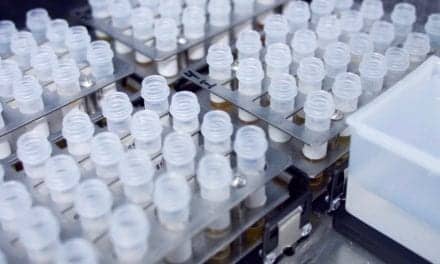Research conducted by University of Virginia in collaboration with Manchester, UK-based Apis Assay Technologies has discovered that Hormone-Upregulated lncRNA within the lymphocyte-specific protein tyrosine kinase (HULLK) is detectable in noninvasive prostate cancer patient samples.
The breakthrough data provides a potential new approach to address the unmet medical need of early diagnostics for prostate cancer, in combination with avoiding the invasive cancer tissue sample collection from biopsy.
Daniel Gioeli, PhD, associate professor, Microbiology, Immunology, and Cancer Biology at the University of Virginia, has shown that HULLK could be isolated from urine of prostate cancer patients and therefore provides a major advantage compared to current invasive sample collection.
The data on the detection of HULLK in urine samples from patients with high-grade prostate cancer (PCa) will be presented by Gioeli during the 2020 Annual Meeting of the Society for Basic Urologic Research,Inc (SBUR), Saturday November 14th.
Apis Assay Technologies and the University of Virginia entered into a Research Agreement in December 2019, after optioning the HULLK technology, which is described in a previous publication from Gioeli´s Group (Ta et al, Molecular Cancer, 18:113, 2019) demonstrating the potential role of this biomarker in FFPE samples from PCa patients.
HULLK, an unannotated lncRNA, is within exon six and the 3’UTR of the LCK gene, is dramatically upregulated by androgen in a dose-dependent manner, and this hormone-induced increase is completely blocked by the anti-androgen enzalutamide. Remarkably, there was a significant positive correlation between HULLK expression and high-grade PCa in three independent cohorts: the University of Virginia, the University of Texas Southwestern, and The Cancer Genome Atlas.
“Virtually all patients with metastatic prostate cancer (PCa) will relapse and develop lethal castration-resistant prostate cancer (CRPC),” says Gioeli. “The new data being presented continues to support the hypothesis on the potential use of HULLK as a biomarker for PCa.”
“The latest data, which demonstrates the presence of this biomarker in non-invasive biofluids such as urine, is an exciting step forward,” says Ian Kavanagh, COO of Apis Assay Technologies. “Our intention at Apis Assay Technologies is to implement HULLK into a clinically relevant signature for early detection of patients with metastatic prostate cancer and provide a guidance for further treatment.”
The overall goal of the collaboration between UVA and Apis is to address the unmet medical need associated with PCa and evaluate the level of HULLK in PCa patients in order to establish the parameters necessary for a clinical trial demonstrating the effectiveness of HULLK as a relevant biomarker.
Despite most cancer studies being focused on protein-coding genes, the evidence that about 97% of the human genome consists of non protein-coding sequences led scientists to investigate the untranslated transcripts, called non-coding RNAs (ncRNAs). The un-translated transcripts, called non-coding RNAs (ncRNAs), can be classified in short (19–31 nucleo- tides), mid (20–200 nucleotides), and long (> 200 nu- cleotides) based on their length. Long-ncRNAs (lncRNAs) represent the largest class of non-coding transcripts with about 55,000 genes along the human genome.
lncRNAs may regulate gene expression through their interaction domains for DNA, mRNAs, miRNAs, and proteins. The ncRNAs have cell type, tissue, and cancer specificity. Thus, RNA profiling has become a means to identify useful biomarkers of tumor development, progression, and metastasis. Although miRNAs represent the most widely investigated ncRNAs, lncRNAs are emerging as cancer key regulators (Grillone et al. Journal of Experimental & Clinical Cancer Research (2020) 39:11).
LncRNA expression profiles can also identify clinically relevant cancer subtypes that predict tumor behavior and disease prognosis, which makes them very promising diagnostic and therapeutic biomarkers.
For more information, visit Apis Assay Technologies.





